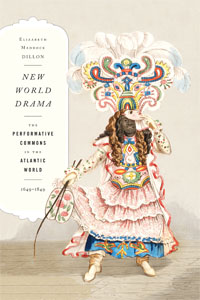 From Palgrave MacMillan: “At the exhausted conclusion of the Napoleonic Wars, as nationalisms gained momentum, writers as diverse as Mary Shelley, James Fenimore Cooper, Washington Irving, and Felicia Hemans took up the discourse of hospitality. In a series of innovative transatlantic texts, they posed urgent questions about displacement and the nation: How does one claim to belong? What are the limits of welcome?Hospitality and the Transatlantic Imagination, 1815-1835 argues that this select group of late-Romantic English and American writers disrupted national tropes by reclaiming their countries’ shared historical identification with hospitality. In doing so, they reimagined the spaces of encounter: the city, the young republic, the coast of England, and the Atlantic itself.”
From Palgrave MacMillan: “At the exhausted conclusion of the Napoleonic Wars, as nationalisms gained momentum, writers as diverse as Mary Shelley, James Fenimore Cooper, Washington Irving, and Felicia Hemans took up the discourse of hospitality. In a series of innovative transatlantic texts, they posed urgent questions about displacement and the nation: How does one claim to belong? What are the limits of welcome?Hospitality and the Transatlantic Imagination, 1815-1835 argues that this select group of late-Romantic English and American writers disrupted national tropes by reclaiming their countries’ shared historical identification with hospitality. In doing so, they reimagined the spaces of encounter: the city, the young republic, the coast of England, and the Atlantic itself.”
